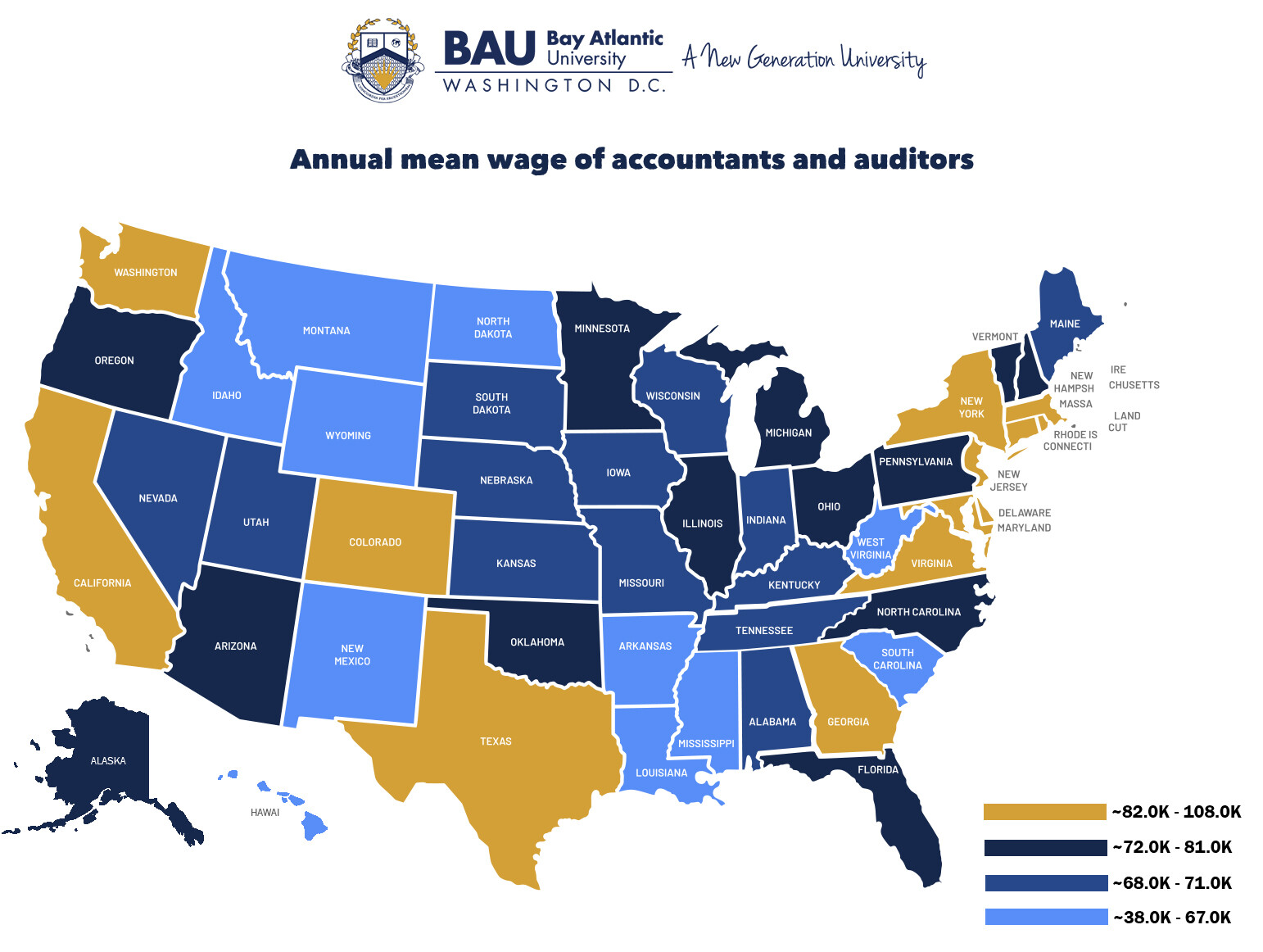Table of Contents
- Is a Bachelor’s Degree in Accounting Worth It?
- So, Should I Major in Accounting?
- The Bottom Line
- Frequently Asked Questions (FAQs)
- What career opportunities can I pursue with an accounting degree?
- Is an accounting degree still valuable in today’s job market?
- How does the earning potential compare to other fields?
- What are the educational requirements for becoming a certified accountant?
- What skills will I develop through an accounting degree program?
- Is an accounting degree versatile across different industries?
- What should I consider when deciding if an accounting degree is worth it for me?
- Is accounting a lot of math?
When considering pursuing an accounting degree, many wonder if it’s worth the investment of time, money, and effort. Like every other profession, accounting comes with its benefits and drawbacks, and for some, one may outweigh the other.
So, is an accounting degree worth It? Is accounting a hard major? What can you do with an accounting degree?
Read on to find out the answers for yourself.
Is a Bachelor’s Degree in Accounting Worth It?
So, is an accounting degree worth It? To answer shortly, for the right person, yes, it is. Getting a bachelor’s degree in accounting might be the best decision you ever make if you’re eager to learn and passionate about the field. There are many benefits that come with being an accountant. However, there are downsides too.
Let’s see what the advantages and disadvantages of being an accountant are.
Advantages of being an accountant
The benefits of being an accountant are numerous, as it is a growing field with many advancement opportunities. Here are a few that stand out.
Clear career path
When getting an accounting degree, you will mostly learn practical skills. Given that it’s a more focused major than art and philosophy, you will have a clearer career path in front of you. However, that doesn’t mean that you won’t be able to change direction if you desire too.
With an accounting degree, there are many professional pathways you can take and grow in. Some accounting jobs include:
- Accounting Clerk
- Accounting Information System Specialist
- Bookkeeper
- Budget Analyst
- Financial Controller
- Forensic Accountant
- Tax Accountant
Potential for growth
Although the first job you encounter may be entry-level position, the potential for growth in accounting is prominent. You can move up the career ladder with hard work, exposure, and experience in the field. You can also earn additional certifications, such as Certified Public Accountant (CPA), which will significantly help your career.
Favorable earning potential
Even when you love your job, the salary is still important. With accounting, the potential for professional growth goes hand in hand with the earning potential.
According to the Bureau of Labor Statistics (BLS), the median annual salary for accountants is around $79,880. However, the top 10% make up to $137,280.
Disadvantages of being an accountant
Everything has its drawbacks, and so does accounting. For all that the field offers, it also requires quite a lot in return. You have to be ready to continue your education beyond a bachelor’s degree and keep up with the industry news.
Here’s what is not so great about accounting.
Education is ongoing
Continually learning new skills and having new education routes to take can be a benefit for some people. However, many don’t want to continue education for years on end to progress in their careers.
Suppose you wish to move forward in your accounting career. In that case, you will need to keep up with the latest industry trends and take on additional education pathways to get certain certifications.
Work can be stressful
As with all jobs, accountants too can have stressful days. When your job is to keep track of the finances of a company, there is bound to be some pressure. Although it’s all part of the game for an experienced professional accountant, it can take a toll on someone’s mental health and should be taken into consideration.
So, Should I Major in Accounting?
The answer to this question entirely depends on your personal goals and aspirations for the future. You should keep in mind that accounting doesn’t stop at a bachelor’s degree. It’s a demanding field with a lot of information to take in, and you should be ready for it.
Some of the best things about this industry are that you can work practically anywhere, there are many opportunities for career growth, there are entrepreneurial possibilities, and the field itself is exciting. However, we mentioned it’s a lot of work and time put into it, which for some people might not make a difference.
The Bottom Line
Obtaining an accounting degree can be worth it you are passionate about the field and interested in pursuing careers in accounting, finance, or related areas. The degree opens up opportunities for various roles in the business world and can lead to a stable and well-paying career.
However, it does come with its ups and downs, as every profession does. If the benefits overpower the disadvantages, you can start your journey by entering our program and getting your Bachelor’s in Accounting at BAU!
✅ Request information on BAU's programs TODAY!
Frequently Asked Questions (FAQs)
What career opportunities can I pursue with an accounting degree?
An accounting degree can open doors to various careers, such as
auditor, tax accountant, financial analyst, management accountant, and even positions in corporate finance or forensic accounting.
Is an accounting degree still valuable in today’s job market?
Yes, accounting remains a stable and in-demand profession across industries. Businesses and organizations always need skilled professionals to manage their finances, ensure regulatory compliance, and provide strategic financial insights.
How does the earning potential compare to other fields?
Accounting offers competitive earning potential, especially as you gain experience and professional certifications (like CPA). Salaries vary based on location, industry, and specialization, but accounting professionals are generally well-compensated.
What are the educational requirements for becoming a certified accountant?
Many accounting positions, especially those in public accounting, require candidates to become Certified Public Accountants (CPA). This typically involves meeting specific educational requirements (150 credit hours) and passing the CPA exam.
What skills will I develop through an accounting degree program?
You will develop strong analytical skills, attention to detail, financial software proficiency, and financial reporting standards. Communication skills are also crucial, as accountants often interact with clients, colleagues, and stakeholders.
Is an accounting degree versatile across different industries?
Yes, accounting skills are transferrable across various industries, including finance, healthcare, government, and non-profits. The principles of accounting apply universally to any organization that manages financial resources.
What should I consider when deciding if an accounting degree is worth it for me?
Consider your interest in numbers and financial analysis, career goals, the potential for job stability and growth, and whether you are willing to commit to continuing education or certifications like the CPA exam.













